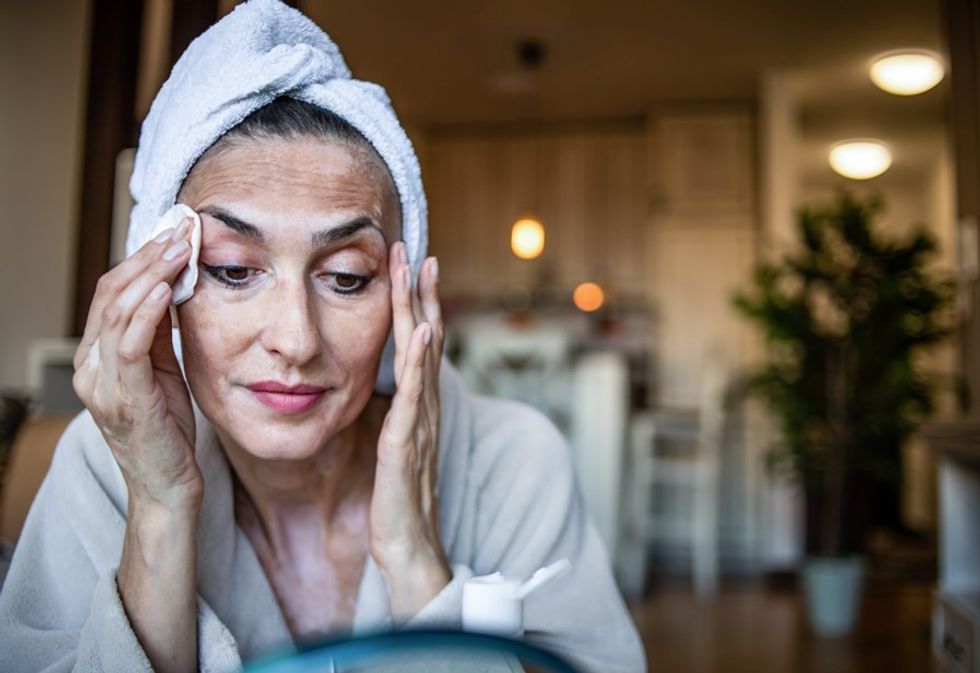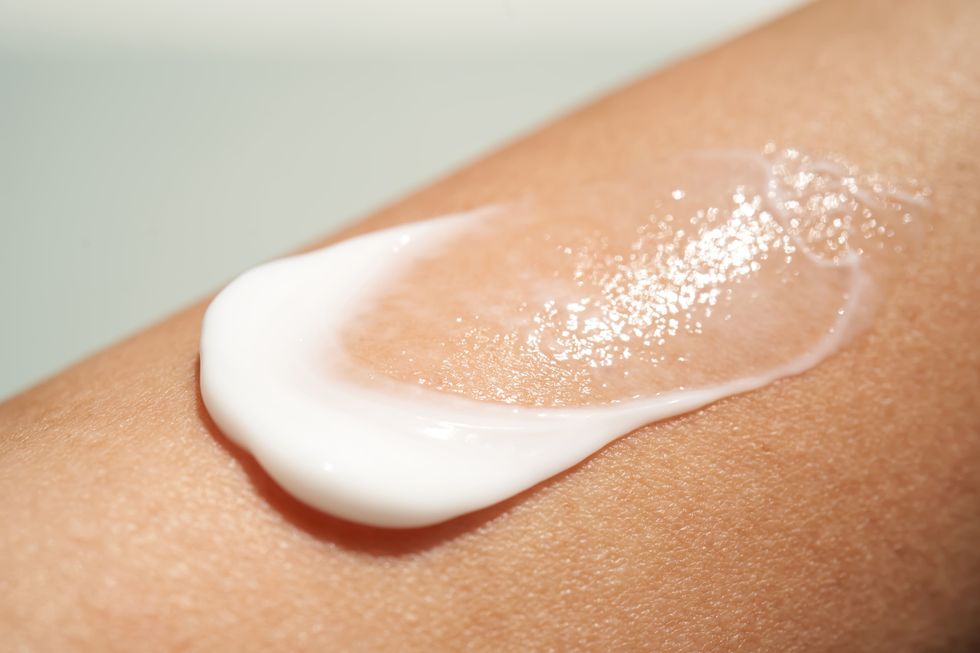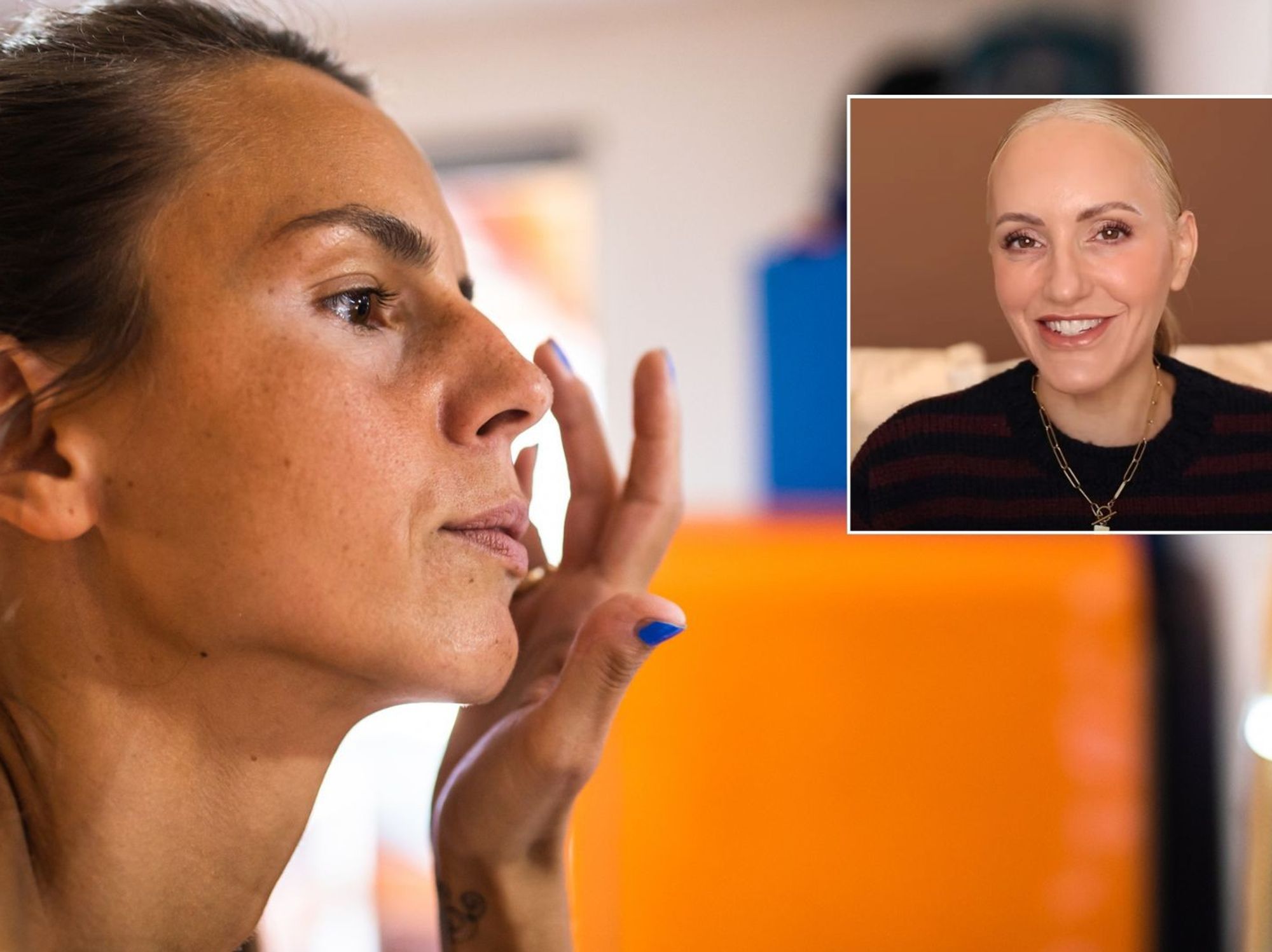The condition stems from an overproduction of melanin in the skin
GETTY
GB News is speaking to experts about the most effective measures to help skin enthusiast meet their beauty goals. This week, two aestheticians, break down the best ways to tackle hyperpigmentation
Don't Miss
Most Read
Trending on GB News
Hyperpigmentation is a harmless skin condition that can strike at any age, but for women over 40, it often becomes a common skin concern.
The condition stems from an overproduction of melanin in the skin. As we age, however, several factors enhance this mechanism, including sun exposure and hormonal changes, explained aesthetician Mikaela MacLean.
Rarer cases of post-inflammatory hyperpigmentation occur due to skin injuries and genetic factors, especially affecting those with more melanin in their skin.
Hormone fluctuations from medications and birth control can further trigger these skin changes.

Hyperpigmentation can reflect hormonal imbalances
GETTY
Skincare prevention:
Though sun exposure is a common culprit behind hyperpigmentation, heat can also wreak havoc.
Mikaela warned that heat exposure triggers pigment production, advising caution with activities like hot yoga and saunas after 40.
"People don't realise how much heat, not just sun exposure, can stir up pigment production," she noted.
"It's important at 40+ to manage hormone-related triggers - hot yoga, saunas, and medications that can additionally stimulate pigment production."
Daily sun protection is a critical component in managing hyperpigmentation, with MacLean emphasising the importance of using SPF come "rain or shin", and wearing wide-brimmed hats.
To treat discolouration at home, the expert recommended a well-formulated antioxidant serum containing vitamin C, alongside nightly retinol use.
She listed several additional skincare ingredients to consider; namely niacinamide, azelaic acid, AHAs, BHAs and tranexamic acid, which MacLean noted is particularly effective.
How diet can help with hyperpigmentation
It's well known that a balanced diet is the key to healthy skin, but MacLean specifically recommends staying hydrated and eating plenty of colourful, omega-3-rich foods.
"Make sure to stay hydration, eat a colourful, anti-oxidant-rich diet, consume omega-3 fatty acids and limit sugar and processed foods," she said.
"However, the biggest effects will be seen with lifestyle changes, wearing sun protection and limiting those hormone-stimulating activities."
For optimal results, MacLean recommended working with a trained skin care professional, particularly when dealing with hormone-related pigmentation.
Professional treatments, such as chemical peels, lasers, light-based devices and micro-needling, can deliver dramatic improvements.
LATEST DEVELOPMENTS

In-office treatments can offer dramatic improvements
GETTY
"The best course of action is to work with a trained skin care professional if possible, which will yield the most dramatic results," she explained:
The aesthetician warned, however, that hormone-based pigmentation doesn't always respond to light and heat-based treatments. She also cautioned that in some cases, botched procedures risk worsening the condition.
Board-certified dermatologist and owner of Dermatology Circle in NYC also stressed the importance of seeking professional medical guidance.
She noted that using prescription medicals can further enhance the effects of proven ingredients.
Among her favourite topical treatments, are hydroquinone, azelaic acid, vitamin C, cysteamine, and tranexamic acid.
"Treating pigmentation is a complex issue that often needs prescription medications and in-office procedures for the best outcome," explained Dr Kazlosukaya.








